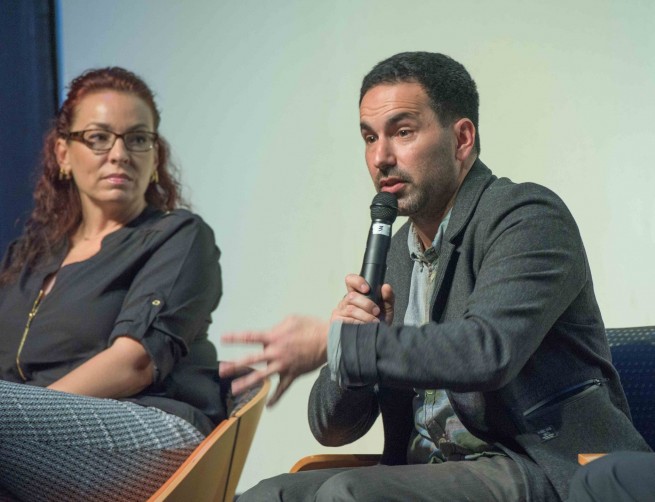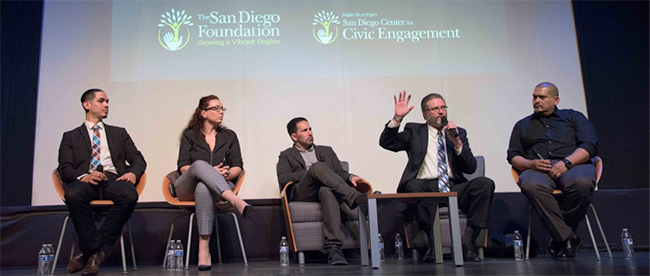Criminal justice reform is quickly becoming a top priority among local, state and federal leaders, and for good reason. For decades, the system has been failing many of those who it is intended to help.
- Since 1970, the U.S. prison population has risen by more than 400 percent;
- One in 35 U.S. adults are in prison, jail, on parole, or probation;
- And according to the California Department of Corrections and Rehabilitation’s 2013 Outcome Evaluation Report, 66 percent of state prisoners paroled in San Diego County recidivated within three years of being paroled.
[Tweet “66% of state prisoners paroled in #SanDiego County recidivated within 3 years of being paroled.”]
Exploring New Opportunities to Reduce Recidivism
Given the importance of fixing this broken system has on our community and economy, The San Diego Foundation Center for Civic Engagement kicked of its 2016 Future40 event series at San Diego City College with “Reducing Recidivism through Connection & Community” to explore some of the root challenges and solutions with donors, nonprofits, academia, government and community leaders.
Scott Budnick, Founder and President of the Anti-Recidivism Coalition and noted producer of The Hangover movie series, took the stage with City College President Anthony Beebe and formerly incarcerated youth in a panel discussion to talk about what needs to change to make communities safer and help improve the system.
As Scott explained it, “Statewide we have a 71 percent recidivism rate. For years, officials have had an idea that we should send parolees back to the same community, but oftentimes that environment leads these people right back to the same problems. This is not a recipe for success.”
The Anti-Recidivism Coalition has built a supportive housing program that is laying the groundwork to help change the recidivism cycle.
Leveraging partnerships with local housing and nearby community colleges, the nonprofit organization is able to provide vital, holistic services to ex-offenders that ensure they transition smoothly and aren’t sent back home with little direction.
The program offers housing and education that includes mentorship, peer support, healthcare services, job training, and a variety of other needs that teach ex-offenders how to effectively adapt back into the community.
This is an all-inclusive approach that has a proven track record of success.

Scott Budnick discuss recidivism solutions during “Reducing Recidivism through Connection & Community”. Click the image to see the complete photo album from the event.
Living Proof
Alberto Vasquez, Jay Morales and Cirese Laberge, ex-offenders on the panel, and even some members of the 150+ audience, confirmed the need for a similar program in San Diego.
Those who spoke said that it wasn’t until they were given housing, an opportunity for an education (such as that offered at San Diego City College), and support services, or a mentor who shared their experiences, that they were able to change their lives.
“I was exposed to gang life early on,” Morales said. “I committed my first crime in 5th grade and continued to make mistakes for a decade until I was finally convicted at age 23. Finally, once I got to UC San Diego and connected with people in my same situation like Alberto Vasquez, I began to realize what else was possible for my future. Now, I’m an environmental chemistry major soon to graduate.”




